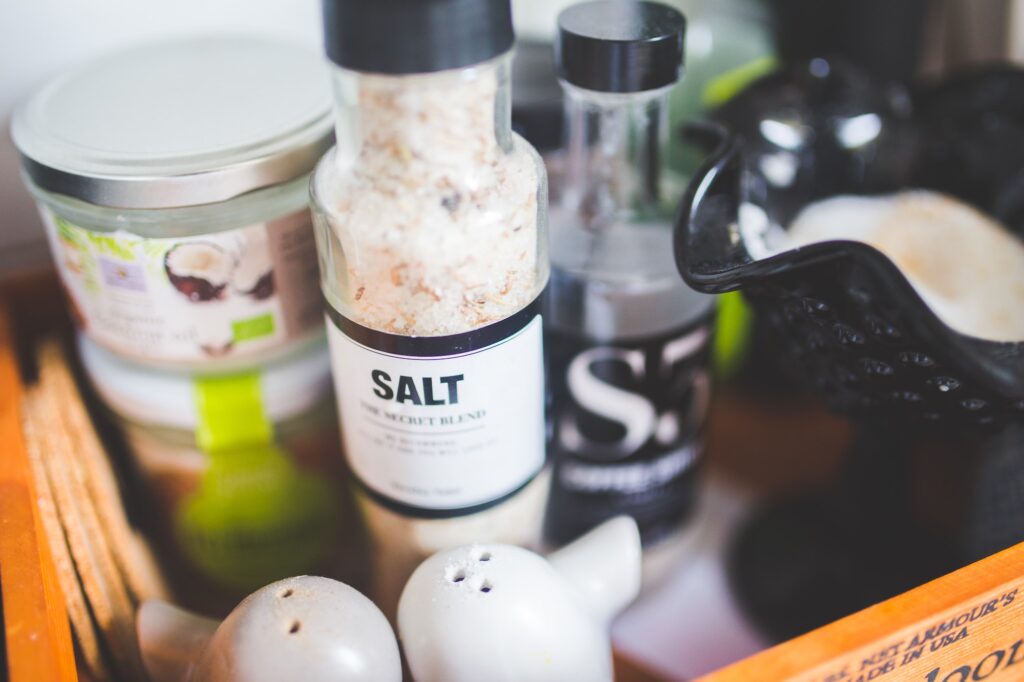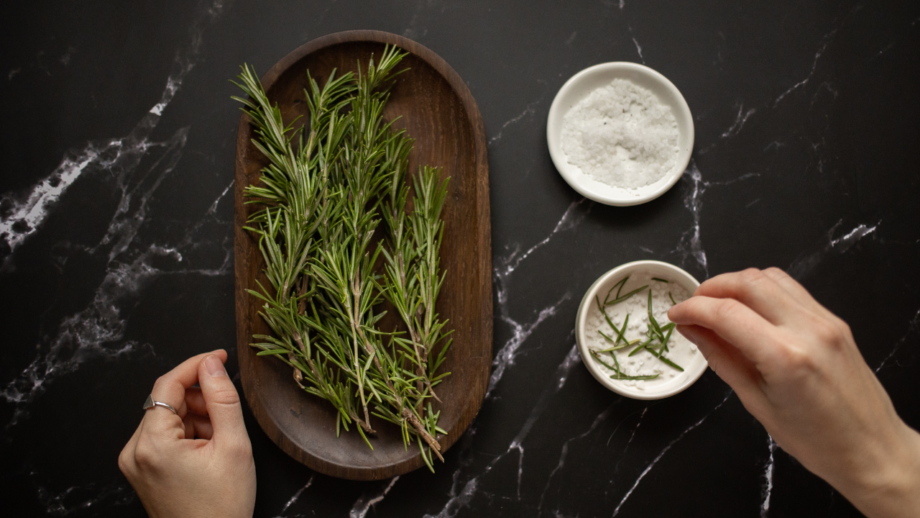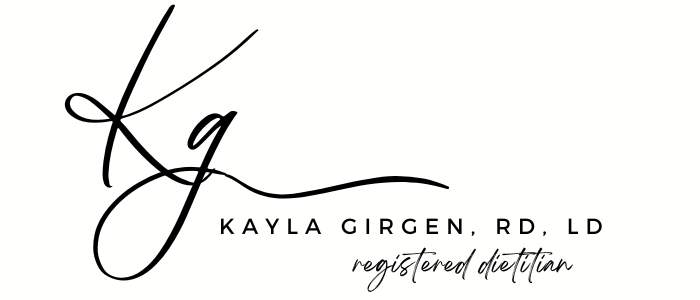Last Updated on October 19, 2023 by Kayla
***DISCLAIMER: This post is not intended to replace professional medical advice from your physician, and a small subset of the population benefits from a low-salt diet. This article is designed for the general population.***
Perhaps you saw my Instagram reel about salt? I received a slew of DMs regarding this misunderstood innocent white powder, so I thought I would explain further.
Keep reading to learn why more salt, not less might be beneficial for your health. Yeah, that’s right. More salt, not less. You’ve probably never heard that from a dietitian before! 😆
The sad, salty truth
I know. I get it. The idea of a high salt diet free of finicky label reading and bland “low-sodium” foods blows my mind too.
I went to school for nutrition and was preached the narrative of “low-salt this, low-sodium that” for nearly half a decade! I was stubborn and shocked that I had essentially paid to learn only half the story when it came to salt.
Let’s begin with the simple fact that salt is an essential mineral for human health, and it’s not bad for you.
In fact, salt plays a role in several important body functions, including:
🧂 Regulating blood pressure
🧂 Helping insulin work better
🧂 Preventing muscle cramps
🧂 Aiding digestion
🧂 Proper nerve & muscle function
🧂 Making [healthy] food taste better!
🧂 And so much more!

So why the assault on salt?
Well, would you believe me if I said our national nutrition guidelines were co-created by a politician in the 1970s and little regarding these recommendations have changed since then?
Need I say more? Unfortunately, a few strong personalities fueled by food industry money reign over what’s taught and what’s not.
The other white crystal
If you want to point a finger at something more detrimental to health, look no further than “the other white crystal” – sugar.
Unfortunately, salt has taken the brunt of what sugar should have been blamed for – high blood pressure, heart attacks, kidney disease, etc.
Again, if we’re looking at over-arching recommendations from our lovely gov, in 1985, the Dietary Guidelines for Americans stated that “contrary to widespread belief, too much sugar in your diet does not cause diabetes.”
An outright lie and the opposite of what research was showing even at the time. Now we know better, and soon, I hope the truth comes to light about salt too!
And, selfishly, I might perhaps be able to shed my reputation as “that crazy dietitian!” 😉
How much is too much?
Current dietary recommendations tell us to limit our sodium intake to 2,300 mg of sodium or one teaspoon of salt per day. Well, guess what? Your kidneys filter this amount every 5 minutes!
Each day, your kidneys filter over 3 pounds of salt! When you follow a low-salt diet, it takes an enormous amount of energy to reabsorb this crucial mineral which causes extra stress on the kidneys.
And so, by eating just a little bit more salt, you might be giving those bean-shaped little workhorses a well-earned break. Plus, a bonus is that you might notice a bump in energy since your kidneys aren’t hogging it all!
When given free rein on the salt shaker, most people consume between 3,000 to 6,000 mg sodium (1.5 to 3 tsp) daily.
And, believe it or not, your tastebuds do an excellent job of telling you how much is too much. So, do as the recipes say, and salt to taste.
Words from the Wise
“You’re body has been talking to you, and it’s time to listen.”
Dr. James DiNicolantonio, author of The Salt Fix
I realize what you’re reading today is a surprise, and I’ve barely scraped the surface here.
To read more about salt and why more, not less could be the key to optimizing your health, cravings, and weight loss, check out The Salt Fix by Dr. James DiNicolantonio. He does an excellent job of deep-diving into all things regarding salt!
Be sure to follow Dr. DiNicolantino on Instagram. He’s one of the few accounts I saved to my favorites! ⭐️
For more guidance on nutrition strategies that actually work and to learn the truth about nutrition surrounding weight loss surgery, come work with me! Join my women’s-only bariatric community or apply to work with me 1:1*. *Limited availability
Yours truly,
Helping women after bariatric surgery lose weight without eating “perfect.” Learn how to balance blood sugar & optimize your “tool” today! Apply to learn more!
This post may contain affiliate links. When you make a purchase through any of the links, there is no additional cost to you, and I may earn a small (and very appreciated) commission. Thank you for your support!


